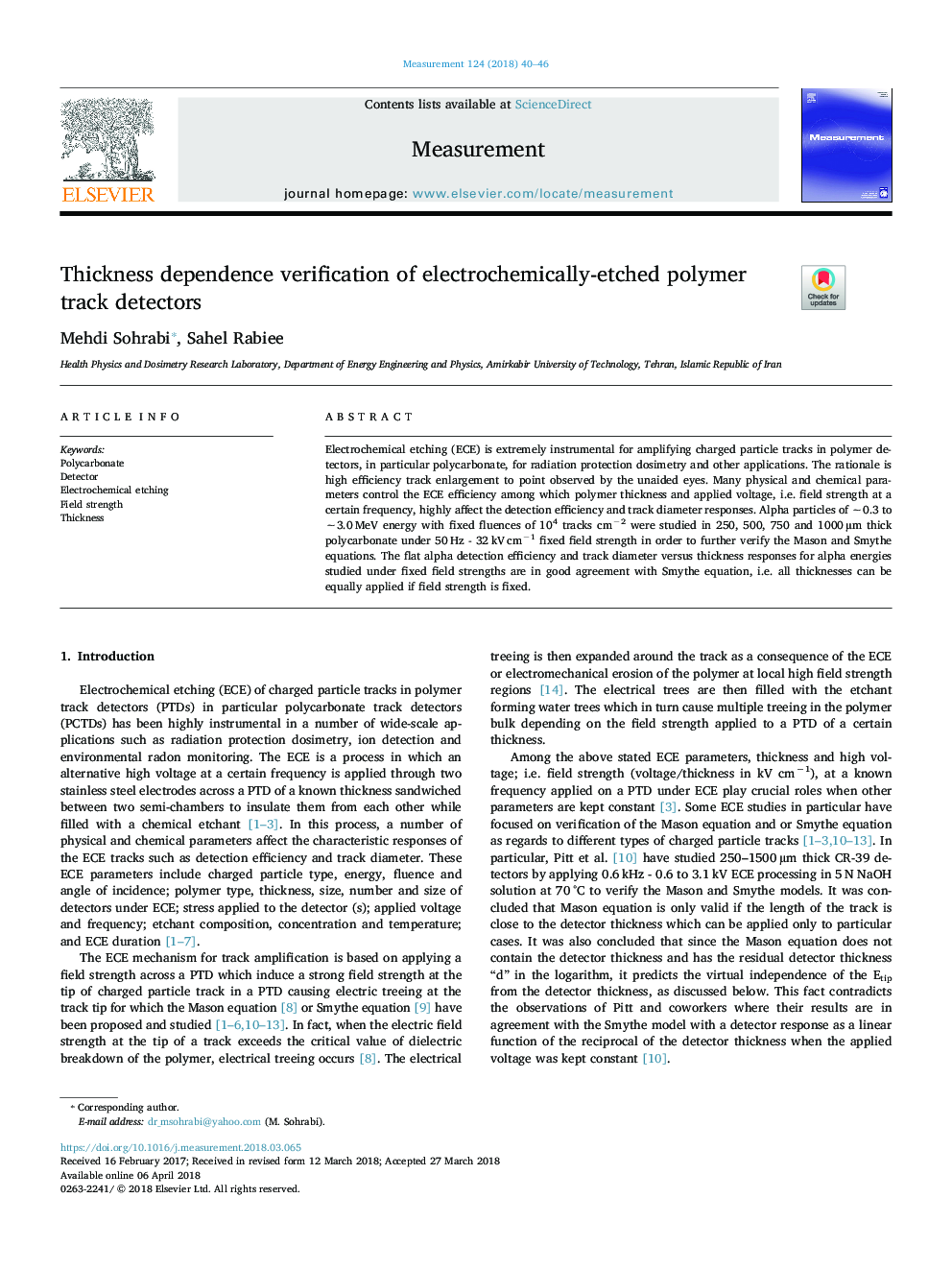| Article ID | Journal | Published Year | Pages | File Type |
|---|---|---|---|---|
| 7120711 | Measurement | 2018 | 7 Pages |
Abstract
Electrochemical etching (ECE) is extremely instrumental for amplifying charged particle tracks in polymer detectors, in particular polycarbonate, for radiation protection dosimetry and other applications. The rationale is high efficiency track enlargement to point observed by the unaided eyes. Many physical and chemical parameters control the ECE efficiency among which polymer thickness and applied voltage, i.e. field strength at a certain frequency, highly affect the detection efficiency and track diameter responses. Alpha particles of â¼0.3 to â¼3.0â¯MeV energy with fixed fluences of 104 tracks cmâ2 were studied in 250, 500, 750 and 1000â¯Âµm thick polycarbonate under 50â¯Hz - 32â¯kVâ¯cmâ1 fixed field strength in order to further verify the Mason and Smythe equations. The flat alpha detection efficiency and track diameter versus thickness responses for alpha energies studied under fixed field strengths are in good agreement with Smythe equation, i.e. all thicknesses can be equally applied if field strength is fixed.
Related Topics
Physical Sciences and Engineering
Engineering
Control and Systems Engineering
Authors
Mehdi Sohrabi, Sahel Rabiee,
